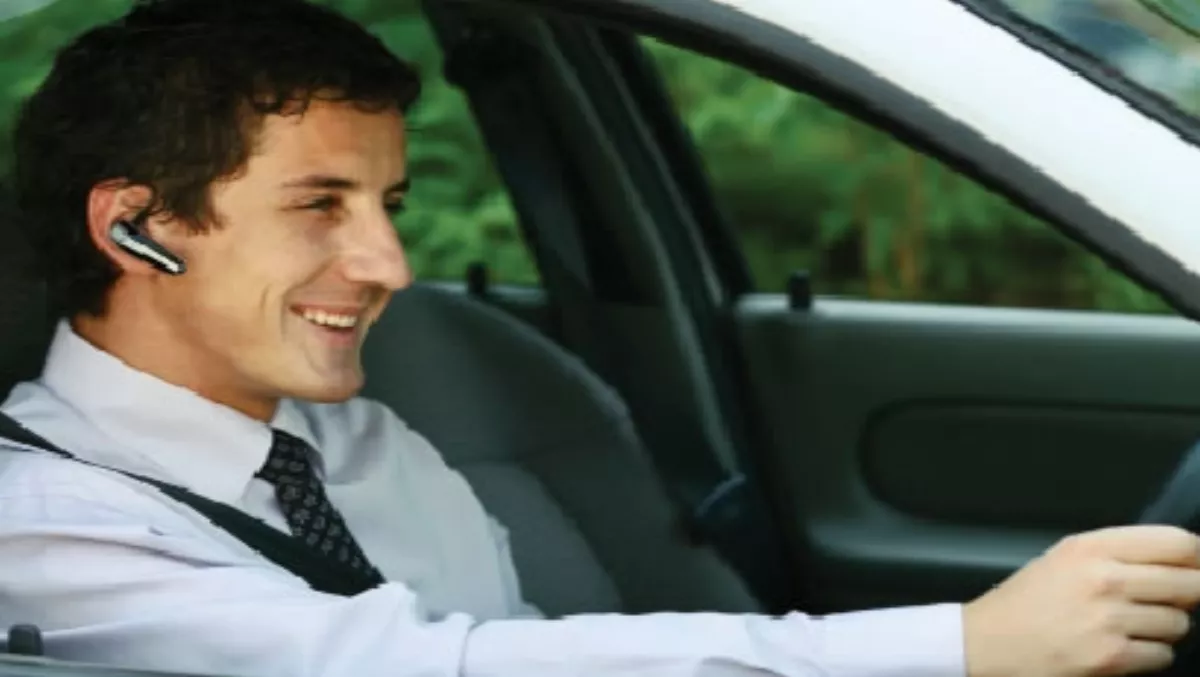Driving while holding your mobile is commonplace in New Zealand, but it may soon become illegal.
If a proposed law change goes ahead at the end of the year, those caught holding their phone while driving could face an instant fine of $50 or see 25 demerit points on their licence.
It’s a law change that’s been a long time coming – the government considered and rejected a ban on cellphone use while driving in 2004. But a Ministry of Transport spokesperson says that since then, the use of cellphones has grown significantly, and with it the danger on the country’s roads.
New Zealand has one of the highest car ownership rates in the world – around 560 vehicles per 100 people and mobile penetration rate of over 100%. Add to the fact that we are a nation of texters, and it’s easy to see why emergency services and other groups are pushing for a law banning the holding of mobile phones while driving.
According to the police, the number of road accidents causing an injury where a driver’s attention was diverted by a cellphone or communications device, has nearly doubled in the last four years, although fatal crashes involving the diversion of a mobile device have dropped. In 2004, there were five fatal crashes that involved the diversion of a mobile device. In 2008, there was only one case.
But these figures may not paint the whole picture.
Automobile Association general manager Mike Noon strongly believes that a large amount of drivers we see on the road who cross lanes or who drive recklessly, are actually people driving while using their mobile device.
Noon is an outspoken advocate of the proposed law change and says 76% agree of the organisation’s members support a ban on holding mobile phones while driving.
He says drivers need educating on the dangers of driving while using a mobile device and urges motorists to pull over to the curb to make a call, text a message or dial out.
Even better, he suggests: “If you get in your car, turn your phone off.”
As a way of getting the message across to all New Zealanders, Noon wants mobile users to change their voice mail so it informs callers that they may be driving, and so can’t answer the call.
Despite supporting a ban, the AA wants to tone down the punishment currently suggested by the government: a $50 instant fine or 25 demerit points. “We think this is too high… we would prefer 10 demerit points,” Noon says.
It is not, however, as severe as in some countries. In Ireland, drivers caught using a mobile device can be jailed for three months on a third offence, while in the Netherlands, they can be fined nearly $6000 or face two weeks in jail.
The proposed law won’t mean you can’t chat on the phone when driving – it just means you can’t hold the handset. Handsfree devices, two-way radios and bluetooth earpieces will be exempt from the law change – despite the fact that Bluetooth earpieces still involve some form of tactile response from users.
A range of studies carried out by the George Institute in Australia found that a driver’s use of a mobile phone was associated with a fourfold increase in the likelihood of crashing, irrespective of whether they were using hand-held or handsfree devices.
Based on the results of the Australian study, an estimated 45,000 drivers have crashed while using a mobile phone, and over the past year more than 145,000 drivers have experienced a ‘near miss’ due to talking on the phone, says Dr Suzanne McEvoy, Senior Research Fellow at The George Institute.
Noon agrees that handsfree devices are also distracting, but he says realistically, talking while driving is so widespread, it’s impossible to ban it outright. Instead, he says, drivers should keep their calls short and to a minimum, even while using handsfree units.
The proposed law change follows a public submission period, which drew a lot of interest from a range of individuals and groups. The Minister of Transport, Steven Joyce is expected to make a decision nearer the end of the year.
In the meantime, you should think carefully about how safe you are when using mobile devices while driving – not to mention your passengers.
“If you get in your car, turn your phone off.”
